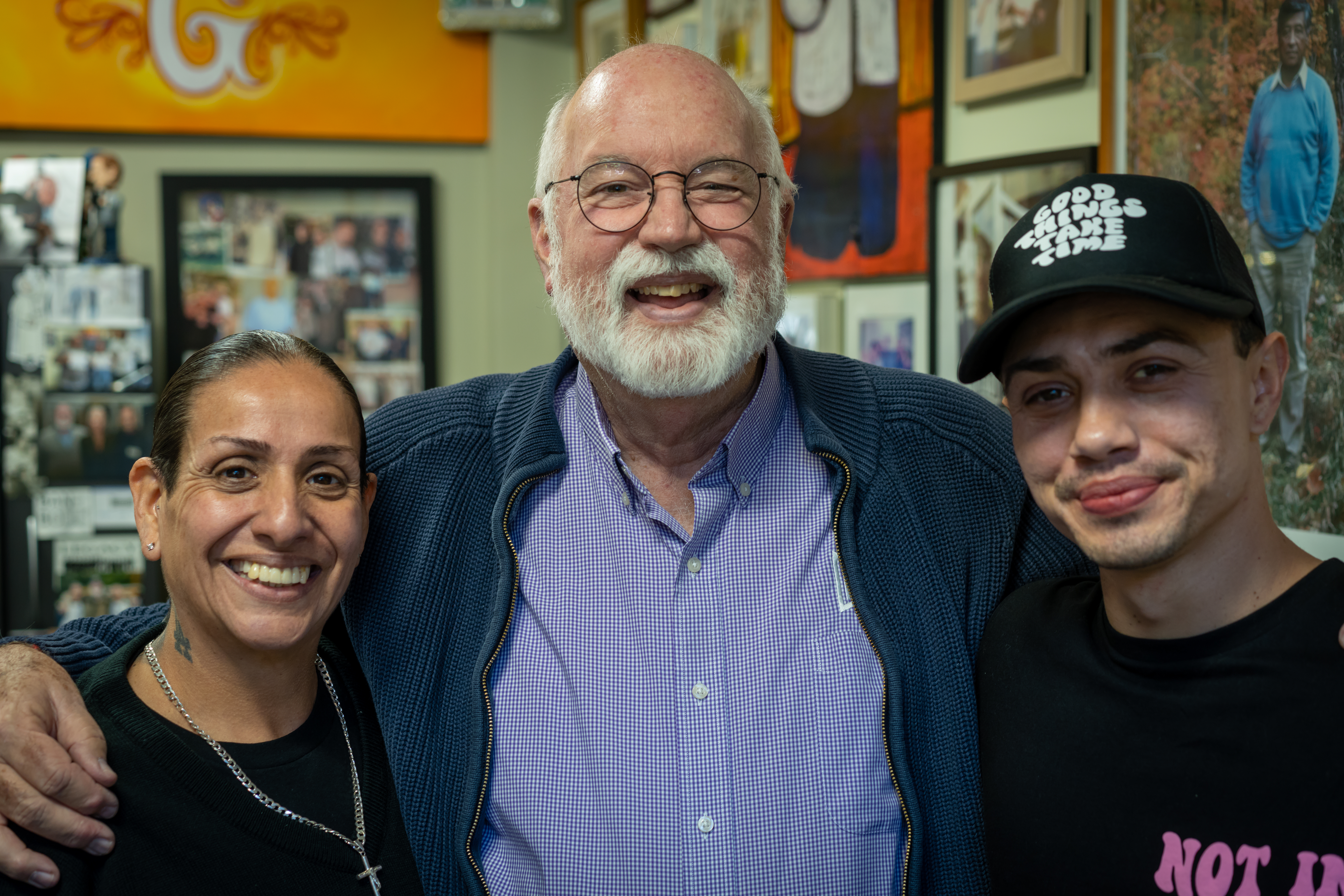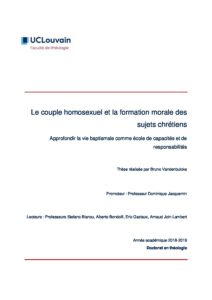I was having a conversation with a homie in my office at Homeboy Industries, the gang rehabilitation program I began in Los Angeles in 1992. He punctuated the end of our talk by simply saying, “Life is removing the blindfold.” It’s like Jesus asking the man who only knows darkness, “What do you want me to do for you?” The man’s response, as recorded in the Gospels, is straightforward: “I want to see.”
And once the blindfold falls, we don’t see “the error of our ways,” nor our sinfulness. We see what God sees: that we are all unshakably good and we belong to each other. Through it all, we want to take seriously what Jesus took seriously: inclusion, nonviolence, unconditional loving-kindness and compassionate acceptance. Living as though that truth was true compels us, as church, to include with more compassion our LGBTQ sisters and brothers.
Meet two gang members, Emily and Daniel, who invite us to widen the circle of compassion and to make sure no one is standing outside that circle.
Daniel’s story

I was born into Catholicism but found my way to being Christian, and at one point, even a Jehovah’s Witness. What was fed to me was all demons and angels. I struggled with this from the moment I became aware that I was attracted to men.
The villages in which I was incorporated, the gang and the church, both said it was wrong to be who I was. This drove me deeper into becoming a more hardened gang member. Along with poverty, my mom’s drug abuse and constant domestic violence, there was this deep sense that I had this demon in me. So, I took this anger and found other angry people. We survived together in the gang.
I spent years incarcerated, beginning when I was 12. Going to church while locked up only made me feel more angry and hopeless. I was never told in church that it was okay to be me. So, I found it easier to be a gang member.
We all need a village, a community to show us who we are and hold the mirror up. I believed I was a lesser person every time religion, God and the Bible told me to “pray the gay away.” The homies would bag on me for a feminine hand gesture or my soft voice. This inflamed my anger and I became even more “hood.” I blended in with all the other lost, angry souls who found their way into a gang. The gang taught me how to be angrier and how not to love myself.
Going to church while locked up only made me feel more angry and hopeless. I was never told in church that it was okay to be me. So, I found it easier to be a gang member.
My mom was dealing with domestic violence and her own addiction and when I came out to her, as disconnected as she was, she did her best to understand me. I grew numb with every incarceration. I was confined in a place full of men I was attracted to and every day, I acted like someone I wasn’t: hard and manly.
After seven years of prison, I found myself lost in drugs and people pleasing. Returning to prison after a D.U.I. conviction forced me again, for two years, to hide who I was.
Now, as a youth advocate, I’ve grown to accept who I am, even though my religion never did. I love myself now and want the same thing for everyone.
Emily’s story

I was baptized in La Placita Olvera, a Los Angeles historic district. But my first real experience of church was when this white lady, Miss Tilly, went door-to-door asking permission for the kids in the neighborhood to attend her church. My parents were preoccupied with their own addictions and gang activities, and they were only too eager to get us kids out of the house. So, despite being Catholic, I started going to this Pentecostal church.
I always enjoyed learning about God until I realized that I was going to hell just for being me. This God was punishing and jealous. I realized all this even before I came out as a lesbian. The God I learned about wanted me to be perfect, so I learned to bury all the parts of me that were unacceptable, like being attracted to women.
I didn’t want to get married at 17, but I did because it was expected of me. At 18, my stepfather died. I saw God in his kindness, unconditional love and his strong belief that everyone was equal and no one was less. After he died, I gave up on God altogether. And since God knew everything, He knew all about the physical and mental abuse I endured. He knew about the beatings from my mother. This God did nothing.
From the age of 15 to 39, I was trapped in my meth addiction. I had no self-respect nor any sense of the teachings of God. My addiction took me to places I regret. I didn’t care what anybody thought anymore. I think meth even gave me the strength to come out to my family.
I always enjoyed learning about God until I realized that I was going to hell just for being me. This God was punishing and jealous.
Growing up, my mother was the biggest drug dealer in the neighborhood. My father was a lieutenant in the Mexican Mafia, an Hispanic-American gang that grew out of the Southern California prison system. People feared us. Going back and forth to prison became a part of my life. After my fourth prison term, I realized how I had wasted my life. I landed in a residential treatment program and found Homeboy Industries.
I remember sitting in a meeting in Father Greg’s office, and he told us that he had just been disinvited from an event because of his opinion on gay marriage. The event offered to host a homie in place of Father Greg, but no one chose to accept.
I looked at G and asked him if I was going to hell because I was a lesbian. I was sobbing. Father Greg hugged me and told me I was perfect, that I was a brilliant light and if I wasn’t in heaven when he got there, he’d find another place to stay.
I thought to myself, “If this man believes this, who am I to not believe it?”
That day, I returned to the God who loved me as I am. By working my 12-step program and being a part of Homeboy Industries, I have been led to know that God is nothing but love. We are all made in God’s image—no exceptions.
We are perfect just the way we are.




